Introduction
As a loving dog mom, you want to make sure your furry friend is happy, healthy, and comfortable. One of the simplest ways to keep your pup in good health is by ensuring they’re getting enough water each day. But how much water should a dog drink, and what factors should you consider? Let's walk through this together, so you can easily ensure your dog is properly hydrated.
Understanding Your Dog’s Water Needs

General Rule of Thumb for Water Intake
As a general guideline, most dogs need about one ounce of water per pound of body weight every day. For example, if your dog weighs 20 pounds, they should drink around 20 ounces of water daily, which is about 2.5 cups. But keep in mind, this is just a baseline. Some dogs might need more or less depending on other factors, which we’ll explore next.
Weight Matters: Tailoring Water to Your Dog's Size
Larger dogs will naturally need more water than smaller ones. For example, a 50-pound dog will need around 50 ounces (or over 6 cups) of water per day. On the flip side, if you have a tiny, 10-pound dog, they’ll need closer to just 10 ounces, or just over a cup. Simple, right? Just remember, you should adjust this depending on other factors like weather, diet, and activity levels.
Breed Considerations: Does Breed Affect Water Needs?
You might be wondering if breed has any effect on water needs. While size plays a big role, breed can influence hydration in indirect ways. For instance, very active breeds like Border Collies or Jack Russell Terriers might require more water because they burn more energy throughout the day. On the other hand, brachycephalic breeds (dogs with flat faces like Bulldogs or Pugs) may struggle more in hot weather, increasing their water needs.
Factors That Influence How Much Water Your Dog Needs

Activity Level: Does Your Dog Move a Lot?
Does your dog love to run, jump, and play for hours? The more active they are, the more water they’ll need. If your dog has a busy day of exercise, hikes, or playdates at the dog park, they’ll naturally require more hydration to stay in balance. Just like us, they lose water through panting and increased energy use. So, be sure to always have water handy, especially on active days.
Climate and Environment: How Weather Plays a Role
When the weather heats up, your dog’s water needs can skyrocket. Dogs tend to pant more in warm or humid conditions to cool themselves down, which can lead to dehydration. On hot days, your pup might need double their usual water intake to stay hydrated, especially if they're spending time outdoors.
Diet: How Your Dog’s Food Impacts Hydration
Your dog’s diet can also play a big role in their hydration needs. If your dog eats dry kibble, they’ll need to drink more water to compensate for the lack of moisture in their food.
Wet Food vs. Dry Food
Wet or canned dog food contains up to 75% water, so dogs that eat wet food may need slightly less water compared to those on dry kibble. However, this doesn’t mean you should rely on wet food alone to hydrate your dog—it’s still important to offer plenty of fresh water throughout the day.
Special Circumstances That Affect Water Intake
Puppies vs. Adult Dogs: Do Younger Dogs Need More Water?
Puppies are energetic little bundles of joy, which means they need plenty of water to stay hydrated. Since puppies are still growing and tend to be more active than adult dogs, they may require a bit more water proportionally. Be sure to check their water bowl often, as they can dehydrate quickly!
Senior Dogs: How Water Needs Change with Age
As dogs age, their bodies may not retain water as effectively, and they may drink less than they should. Senior dogs, especially those with kidney or bladder issues, might need encouragement to drink more water to avoid dehydration.
Health Conditions: When to Pay Extra Attention
If your dog has certain health conditions like diabetes, kidney disease, or is taking medications like diuretics, they might need more water than usual. These conditions can affect your dog’s hydration levels, so it’s crucial to monitor their water intake closely and consult your vet if you notice any changes.
Signs That Your Dog Needs More Water

How to Tell If Your Dog Is Dehydrated
Dogs can’t tell us when they’re thirsty, but there are clear signs you can watch for to ensure they’re getting enough water.
Physical Signs of Dehydration
Some common physical signs include:
- Dry gums or a dry nose: If your dog's gums or nose are dry, this could be a sign of dehydration.
- Sunken eyes: Eyes that appear sunken may indicate your dog is not getting enough fluids.
- Lethargy: Is your pup acting sluggish or tired? Dehydration can cause low energy levels.
Behavioral Changes to Watch Out For
Other signs include increased panting, loss of appetite, and lack of interest in normal activities. If your dog seems off, check their water intake.
Tips for Encouraging Your Dog to Drink More Water

Making Water More Accessible
Place water bowls in different areas of your home so your dog always has easy access. If your dog spends a lot of time outside, make sure there’s a water bowl available both indoors and outdoors. A simple trick, but it makes a big difference!
Adding Flavor to Their Water
If your dog is picky or seems uninterested in their water, try adding a splash of low-sodium chicken or beef broth to make it more enticing. You could also try offering ice cubes as a fun treat on hot days—some dogs love crunching on them!
How to Track Your Dog’s Water Intake
Monitoring Daily Water Consumption
Tracking how much water your dog is drinking can help you spot any changes early on. Use a measuring cup to fill their bowl each morning, and check throughout the day how much is left.
Using Smart Water Bowls and Apps
There are even smart water bowls and apps that can track your dog’s water intake for you! These handy tools can alert you if your dog isn't drinking enough.
When to Call the Vet: Warning Signs to Look Out For
Persistent Dehydration Symptoms
If your dog shows signs of dehydration and they don’t improve after increasing their water intake, it’s time to call your vet. Dehydration can lead to serious health issues if left untreated.
Excessive Water Drinking
On the flip side, if your dog is drinking way more water than usual, this could also be a sign of an underlying health issue. Conditions like diabetes or kidney disease can cause excessive thirst, so don’t hesitate to check in with your vet if you’re concerned.
Conclusion
In the end, keeping your dog well-hydrated is one of the easiest ways to ensure they live a happy and healthy life. By paying attention to their size, activity level, diet, and the weather, you can make sure they’re getting just the right amount of water each day. And remember—when in doubt, offer a little extra water. It’s always better to be safe than sorry!
FAQs
How much water does a puppy need compared to an adult dog?
Puppies are more active and growing, so they might need a bit more water per pound of body weight than adult dogs.
What should I do if my dog refuses to drink water?
Try adding a splash of chicken broth to their water or offering ice cubes. If they continue to refuse, consult your vet.
Can my dog drink too much water?
Yes, excessive drinking can be a sign of health issues like diabetes. If your dog is drinking a lot more than usual, see your vet.
Does wet food mean my dog needs less water?
Wet food contains moisture, but you should still offer plenty of fresh water, as your dog may still need more hydration.
How do I know if my dog is properly hydrated?
Check for moist gums, good energy levels, and normal behavior. If they’re panting excessively or seem lethargic, they might need more water.


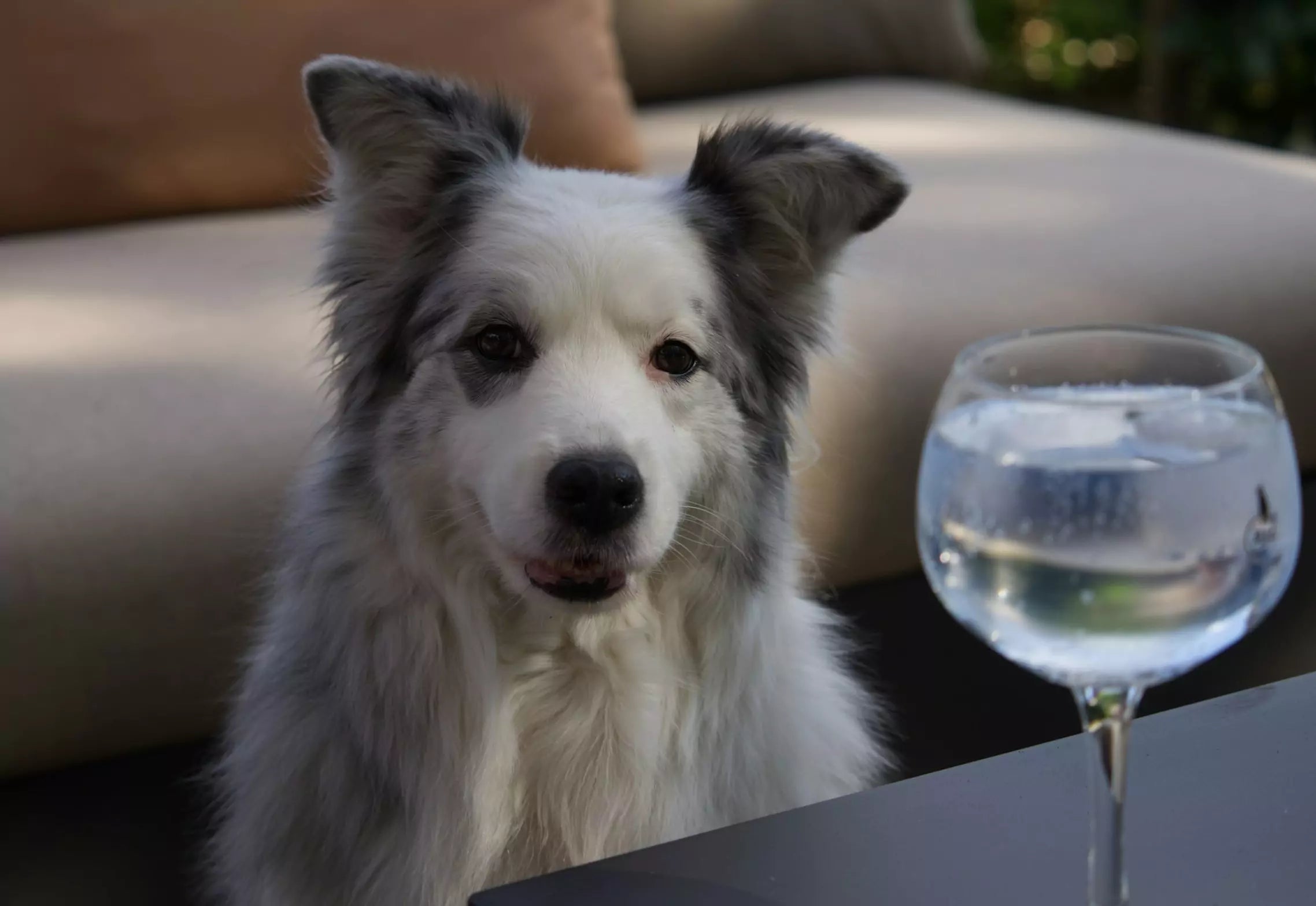
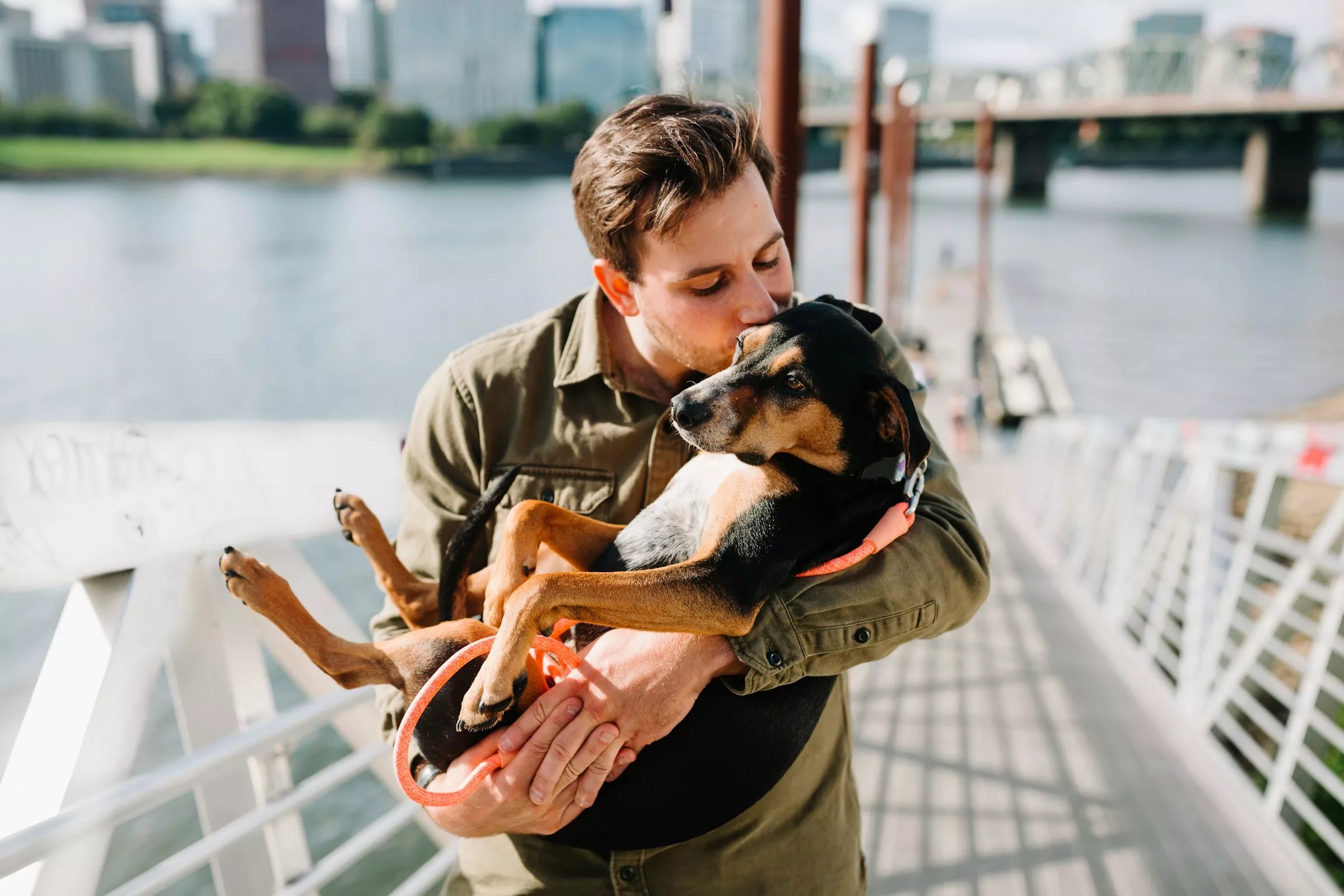
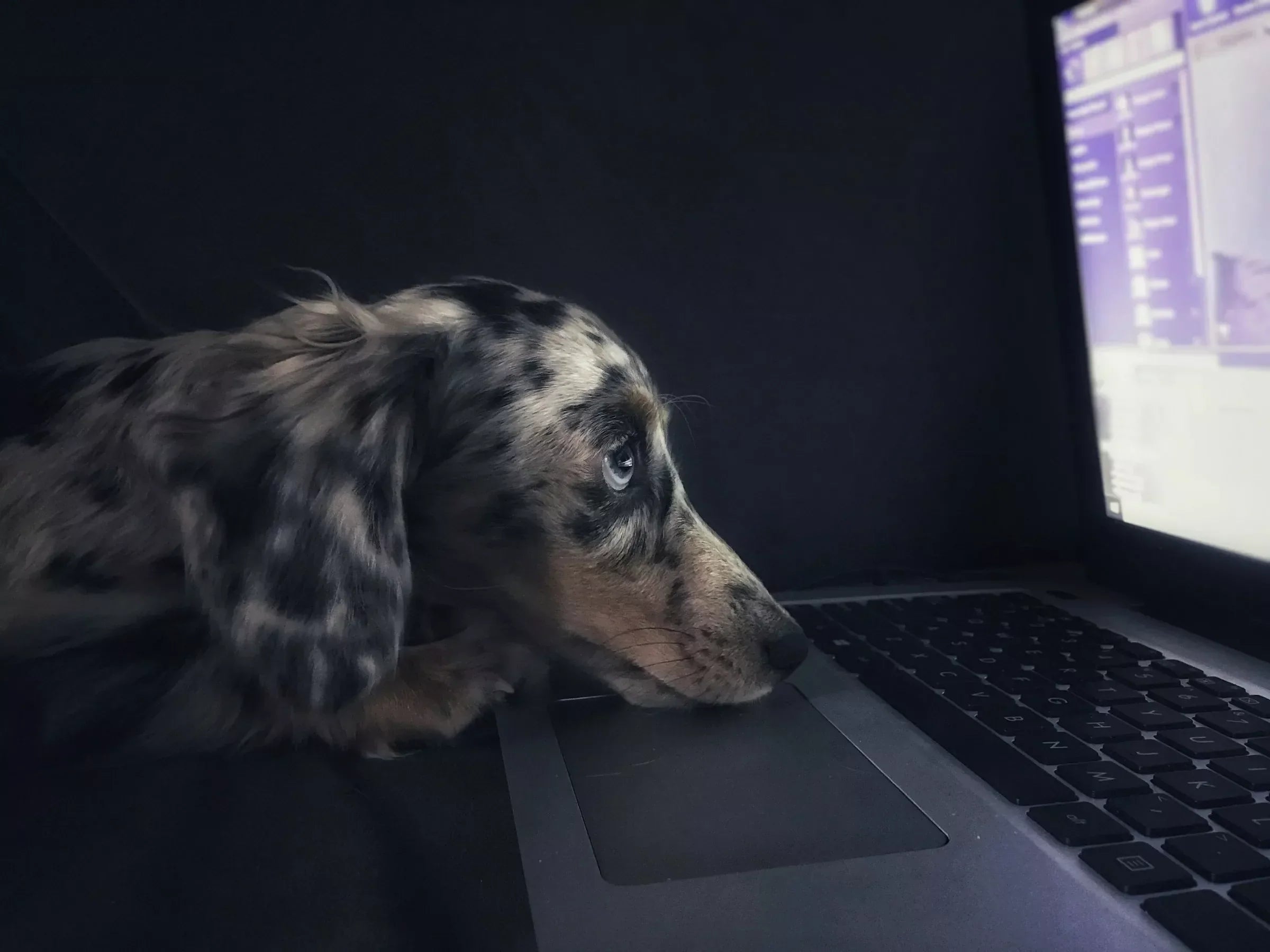

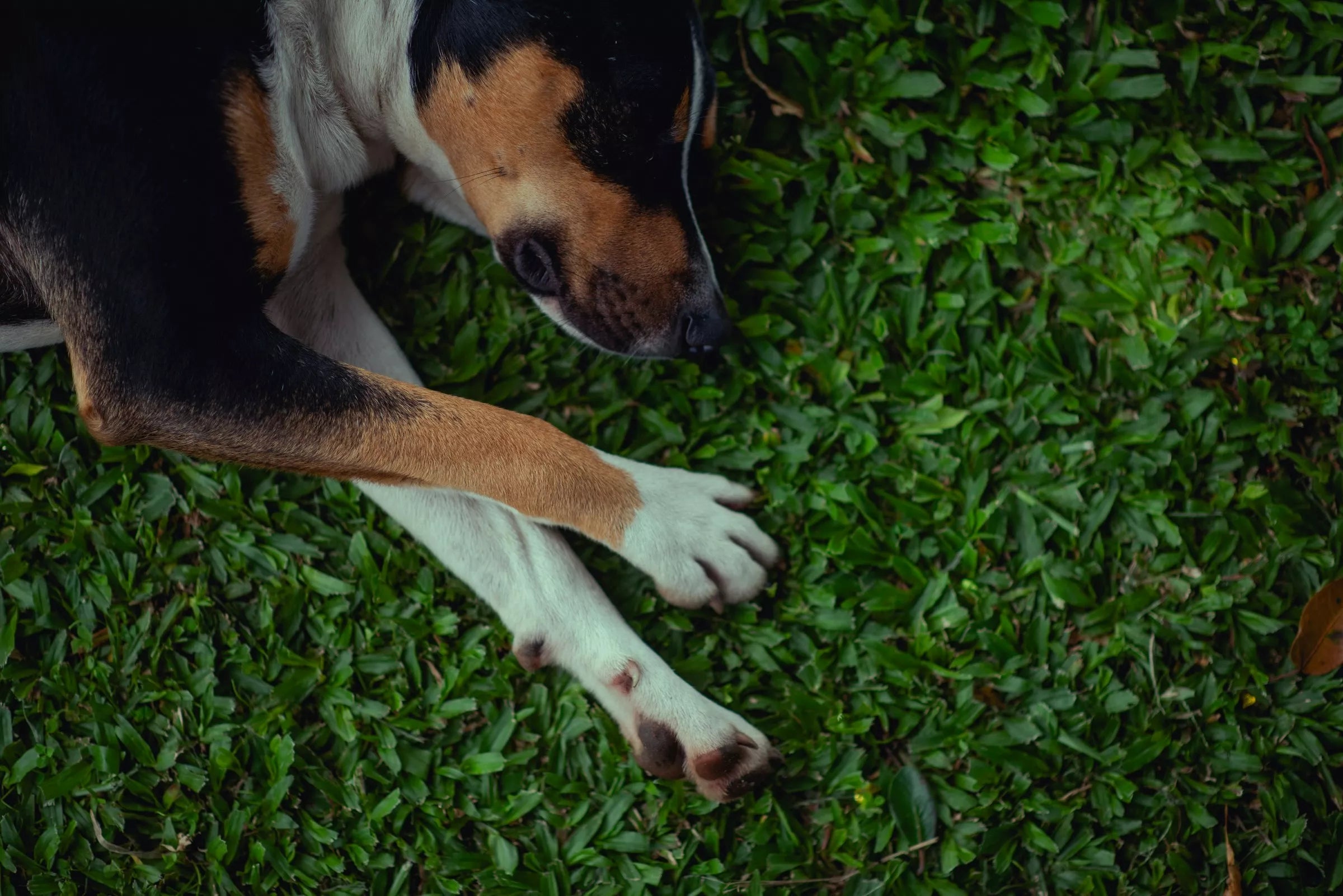

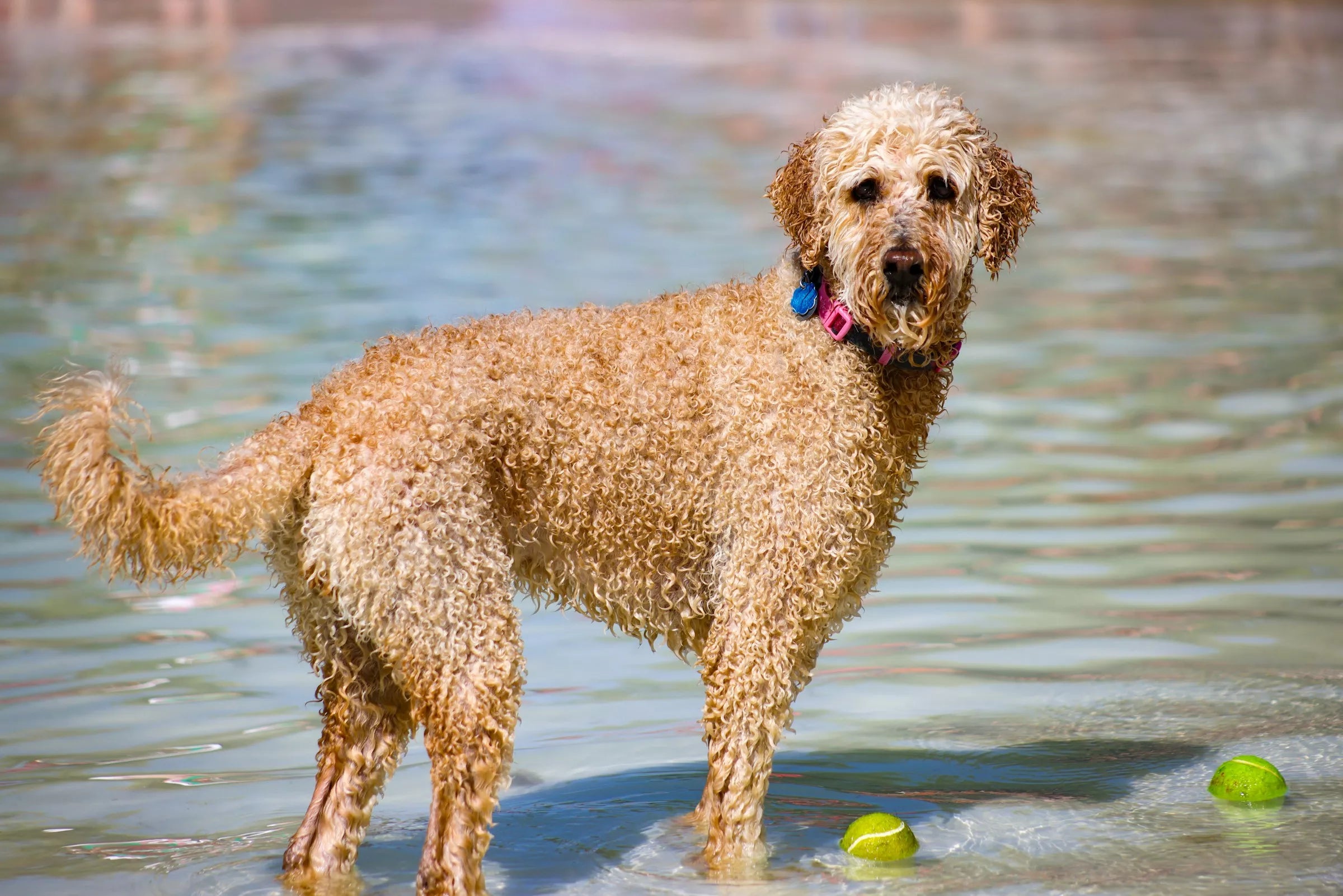






Share:
Are Grain-Free Diets Really Better for Dogs?
Can Dogs See the TV?